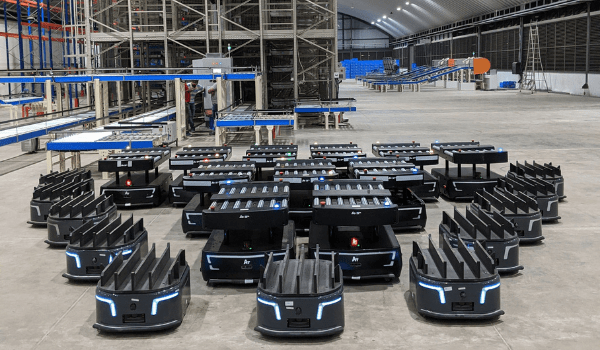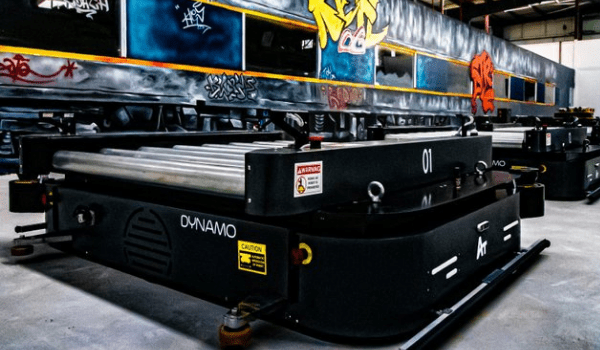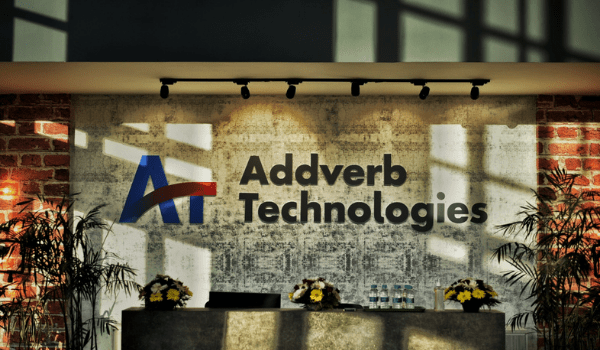India, with a huge subset of its youth equipped with technical skills, has been rapidly advancing in the field of engineering. Robotics being a relatively new sub-domain, few indigenous startups have come up in this space. One such company, Addverb Technologies, rose to fame when it developed a tele-robotic ultrasound system in conjunction with IIT Delhi and the All India Institute of Medical Sciences (AIIMS), to make ultrasound imaging possible from a remote location.
Set up in 2016, the global robotics company currently employees over 550 engineers with diverse specialisations. Since the skillset required is relatively expensive, the Company has to be extremely meticulous with its hiring and finding the right fit. Speaking to HRKatha, Satish Shukla, co-founder & head – HR & marketing, Addverb Technologies, details the process of finding the ideal fit.
The interview process, comprising almost five to six levels, as informed by Shukla, is a very long one. “We start off with a couple of technical rounds, with the first one conducted at a peer or an engineer level. The second would be with someone between 5-10 years of experience. The technical rounds are followed by three leadership rounds,” explains Shukla. This process, however, is not fixed. A candidate can expect any one of the above at any point in the process of hiring. During the entire process, the candidate is judged on the basis of three basic parameters — knowledge, attitude/energy and curiosity.
“There must be an inquisitive energy in the persons we hire, irrespective of what they are passionate about”
Satish Shukla, co-founder & head – HR & marketing, Addverb Technologies
“We look for the basic technical building blocks of knowledge. After that, we specifically hire for the right attitude. There must be an inquisitive energy in the persons we hire, irrespective of what they are passionate about. If they are able to really discuss in depth, about things that they are passionate about, then that passion would transfer into other things they may pursue as well. Third, we look for people who have the curiosity to ask questions and not take everything on face value,” he added.
Shukla also points out that the Company encourages hiring managers to take on people whom they find to be more intelligent than them.
Since not many colleges offer a robotics-specific curriculum in engineering, Addverb hires people from all domains and works with a multi-disciplinary team of engineers. After recruitment, the new recruits are subjected to another screening process, which gives them a hands-on- experience of the field.

“Many things that are required for working in the robotics domain are not taught in any curriculum. We ask new recruits to go through a particular list of courses before joining. After onboarding, we get some of our experienced team members to guide and mentor them in their initial phase,” Shukla shares. He adds that the new recruits are then deployed to project sites for the first couple of months.
Shukla believes that it is important for people to be passionate about their jobs. This is also imbibed in their company culture, which offers a ‘no questions asked’ leave policy and complete autonomy over working hours to each employee.
It is Shukla’s belief that a good HR department is invisible. “The moment the HR leader becomes omnipresent, the company will be in trouble,” says he pointing out that, Addverb’s “founding principle is freedom in responsibility. We don’t want people to spend time or give thought to administration. We give our employees complete autonomy over their work hours, the only condition being that they maintain proper communication with their team.”

“If we deem someone capable of misusing the system in place, that means they are not fit for our culture, and therefore, we ask them to leave,” he asserts.
The Company has fostered a culture, where all employees — from shop floor professionals to the CEO — share an open space office. This allows them to promote a feeling of equality and develop a harmonious work culture. With a 550-strong workforce at the moment, Shukla aims to preserve this work culture as the Company continues to expand.



